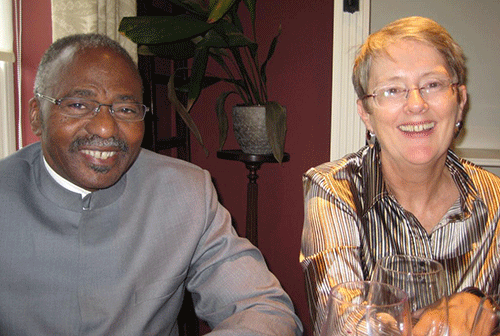Southern African Research and Documentation Centre chairperson Peter Katjavivi has welcomed a project, aimed at teaching and learning southern African liberation history, saying the project will empower young people across the region to appreciate and take ownership of their history and work together toward a common future.
Katjavivi was speaking during the UNESCO and SARDC online conference on promoting southern African liberation history with the Southern African Development Community (SADC) group of ambassadors to UNESCO.
He called on stakeholders to sustain the development of the significant work as well as to translate and produce these modules in the other Southern African Development Community (SADC) official languages of French, Portuguese and Kiswahili.
“This is an occasion that we expect to look back on as a turning point, and a marker in the liberation of the continent – liberating – because this is a part of our struggle for freedom and unity in Africa,” said the Katjavivi, who is the country’s National Assembly Speaker.
He said, several decades after independence, SADC is finally confident enough to tell its children about how it regained its freedom, based on shared values of unity, community, solidarity, collaboration and self-reliance – and how it intends to carry these values forward in the region.
“We could not do this without telling the story of our liberation history, and I want to acknowledge the decision of the SADC ministers of education to embrace this history and commit to ensuring its inclusion in the schools’ syllabus in SADC member states. I salute all of you, ambassadors of the SADC member states, for this decision,” Katjavivi said.
He also thanked the SARDC, which he said has marched with them and continues to do so by documenting progress and producing knowledge for development.
“The clarity of your work is an asset to the region – inclusive of your current work in keeping our history alive by developing resource materials on our shared liberation history in Southern Africa,” he said.
He further acknowledged UNESCO for its visionary approach to African history.
“With your support for this initiative on producing resource materials for teaching and learning Southern African Liberation History, this is an illustration of the solidarity that won the freedom of the African continent right down to the southern tip of apartheid. We continue to consolidate that liberation, together through addressing racism and discrimination and exclusion,” Katjavivi said.
Themed ‘Promoting the Southern African Liberation History Advancing Education, Memory and Intergenerational Engagement for Regional Integration and Peace in Southern Africa’, the conference witnessed UNESCO and SARDC presenting existing educational and research materials jointly produced to foster knowledge and social engagement on the southern African liberation history.
The conference also enables a strong engagement with the ambassadors of SADC member states to UNESCO for further development and expansion of the National Liberation Movement Heritage Programme as a contribution to the General History of Africa Flagship programme of UNESCO.


